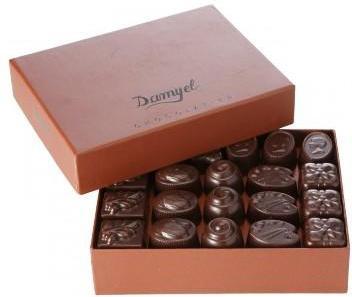
Getting to Know Cool Climate Kosher Wines
These days the same variety of grape can be grown in France or California, but the same name is not always a guarantee of similar taste.
This is because climate, as much as grape type or the skill of the grower, has a phenomenal impact on flavour.
But what are the real differences between warmer climate and cooler climate wines and which is better?
Kosher-Wine.eu is taking you on a journey to get to know our cooler climate kosher wines and what makes them special.
The Difference Between Cool Climate and Warm Climate Grown Wines

When sampling a large selection of both cooler and warmer climate wines from top kosher wineries, the first distinct difference you will notice is acidity level.
It can be hard for a novice palate to detect, since each wine and each vintage is so unique in taste and aroma, but broadly speaking you will begin to notice that the fruitiest wines tend to originate from warmer climates. However, those grown in cooler climates have a higher level of acidity.
So how does acidity level vs ripeness create different flavour in wine?
Well, our kosher red wines like the Merlots, Pinot Noirs and Cabernet Sauvignons will have a lighter body, lower alcohol content and a pleasant spicy taste when grown in cooler climates. Some other common themes in the flavour of kosher red wines from cooler climates are a tart raspberry or sour cherry note compared to gentler, sweeter fruit flavours from warmer regions.
In our kosher white wines, the effect is a sharper fresher note with a citrus, almost lemony aroma or herbal flavour. Cooler climate whites like Sauvignon Blanc, Chardonnay and Riesling kosher wines have more of these attributes than when those grapes are grown in warmer regions.
What Causes the Difference in Flavour Between Warmer and Cooler Climate Wines?
Warmer climate wine regions have more consistent temperatures throughout the growing and harvesting seasons. The slower drop in temperature after summer means grapes have a greater opportunity to ripen. Grapes picked when very ripe tend to have a higher level of sugars, a greater alcohol content and more complicated fruit notes.
Grapes picked when less ripe have more acidity and this is why wines from cooler regions tend to be more acidic, as they have less time to fully ripen before harvesting.
Since the summer season is more uniform in warmer climates, you are also more likely to experience better consistency between vintages. As anyone living in a more temperate climate can attest, summers in Northern Europe can be decidedly mixed. Anything from pleasant heatwaves to flooding to hail stones is on the cards. This is why highly experienced wine drinkers will be carefully considering the vintage, especially when it comes to the cooler climate wines. If you can identity the weather patterns of that year, it can lead to better predictions on the ripeness of the grapes when they were harvested.
This is why a Cabernet Sauvignon or Chardonnay can be so different if produced in France or Napa.
Identifying Cooler and Warmer Climates for Kosher Wine
Luckily kosher wine is now being prepared in outstanding kosher wineries around the world from every renowned wine region.
If you’re seeking a more sharp, fresh flavour in your kosher wine, look for the region in which it was produced.
While micro climates, elevation and rainfall play a part, generally speaking kosher wines from California, Israel, Argentina, South Africa, southern Spain, southern Greece and the Greek Islands and southern Italy would be regarded as warm climate wines.
This can extend to very southern France on a good season. Wines produced in New Zealand, the UK, northern Spain, northern Italy, Belgium, Austria, Hungary, Germany and the cooler northern states of the USA, particularly New York State and Washington state and most of France are cooler climates for wine.
Wine Folly have produced this handy graph to help less experienced wine lovers get to grips with the temperature segregation of wine regions:

Image Source:
https://winefolly-wpengine.netdna-ssl.com/wp-content/uploads/2014/08/warm-vs-cool- climate-wine.png
Is Warmer Climate Grown Wine Superior?
Growing wine in cooler climates definitely has its challenges. While acidity can be an advantage for taste, timing the harvesting can be a real guessing game, with short, unpredictable summers.
Too much rain and early or late frosts are a major problem for wine growers in these regions, as a frost can devastate an entire vineyard for the year.
Grape yield is also lower on average in cooler climates. However, this is not to say kosher wines and all wines from warmer regions are necessarily superior to cooler climate wines.
Seasoned kosher wineries know that harvesting time is a balancing act. Harvest too early and the grapes aren’t ripe enough but harvest too late and they lose all acidity, which is very important for the taste of great wine.
In warmer climates it can be trickier to retain that acidity if you harvest later. Some wineries find they must add acidity back into the wine after harvest to achieve the correct flavour! There is also the issue of longer ageing thanks to thicker grape skins in warmer climates increasing tannins.
Very hot summers and extreme drought can also be as bad for the wines as cold weather.
And remember, when it comes to wine, not everything is always as it seems…
You can absolutely buy a wine grown in a cooler region and have it taste like a warm climate wine and vice versa. If the forecasts are reliable in a cooler climate and the region experiences a longer summer than average, it is much easier for wine growers to pick their grapes later – the result is a vintage with riper grapes and less acidity.
The reason we can segregate wines into categories of cooler and warmer climates by taste is because on average cooler climate wines will be more acidic and this lighter, spicier taste in reds and fresher more citrus notes in whites is what wines of those regions became famous for. Therefore, wine growers will still tend to pick grapes earlier for the higher acidity their clientele have come to love with enjoyable subtle variation each year.
Cool Climate Kosher Wines
Some of the most famous wines in the world are grown in cooler, temperate climates. After all France is not known as the wine capital of the world for nothing.
Even highly prized Champagne would be considered a cooler climate sparkling wine. The Loire valley is certainly in the zone of cooler climates in terms of wine growing and Sancerre and Chablis are widely loved and highly coveted wines.
At Kosher-Wine.eu we have curated a varied selection of kosher wines from both cool climates and warmer climates. This allows us to bring a diverse range of flavours to our customers.
Whether you prefer the sharper acidic notes of traditionally cool climate wines or the deep, complex fruit flavours of fuller bodied kosher wines, grown in warmer regions, we have you covered.
If you are keen to get to know cool climate wines better, we have delightful Loire kosher wines, Alsace kosher wines, Barolos from Northern Italy and an entire spectrum of flavour from kosher wineries in cool climates.
Cedev Cooler Climate Kosher Wines
If you’re after something extra special in a cooler climate wine, we highly recommend taking a look at our very own Cedev Kosher Wines, including the 2016 Chateau Haut Brisson.
This elegant red Bordeaux blend kosher wine has been a big hit with our customers and many wine connoisseurs. We'd like to thank Kosher Wine Musings for their review of our wine with a score of 92. As their description points out, this is a rather full-bodied kosher wine experience for a cooler climate wine. It has pleasant "rich earth " tones and darker fruit flavours but with that distinct raspberry note that is so commonly indicative of cooler climate wines. Its balance will, we believe, make it a pleasurable indulgence for both wine lovers who normally favour cooler or warmer climate wine.

Read the full review from Kosher Wine Musings blog here.
We are also proud to discover a fabulous concurring review on Cellar Tracker:

This is a limited-edition wine that can be purchased in our online shop today, but don’t delay, as it is proving highly popular.





